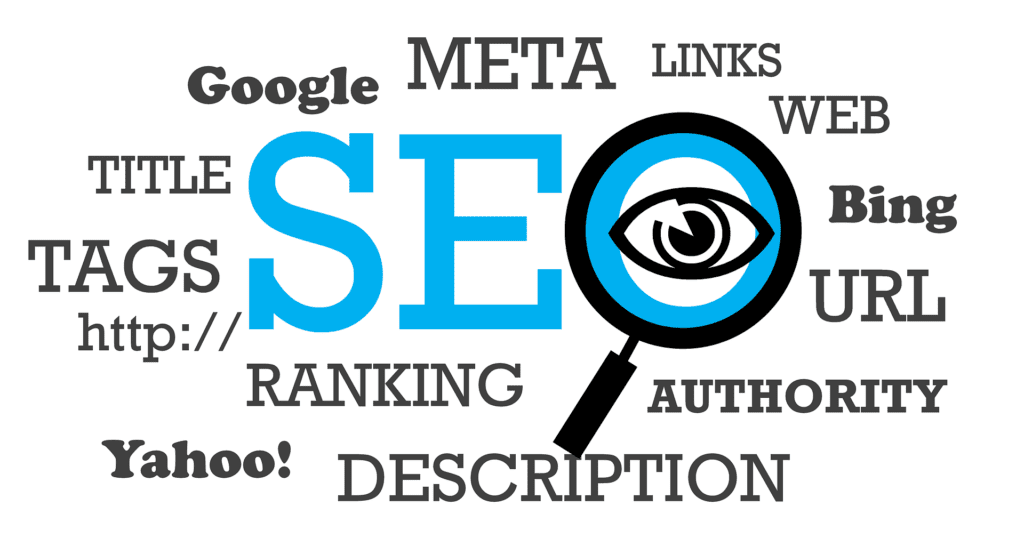Introduction
Are you starting up a new website? Or are you a content writer who is trying to dabble into online, SEO-optimized blogs? If so, you may be wondering “what is search engine optimization?” and “how long does SEO take?”.
Without having a general idea of how your articles are indexed in popular search engines like Google, you might end up spending tons of time in the pursuit of ranking your articles. However, the entire process is more straightforward than it looks once you get the hang of the many nuances it entails.
What is SEO?

SEO or Search Engine Optimization is the process of ensuring that the content you write on your website about any niche, whether general or not, is engaging, informative, and authoritative enough to be indexed (ranked) on popular Search Engines like Google. With over 85% of search traffic coming to Google, this article will primarily focus on Google and will provide you with insights as to how long SEO will take to work.
Clearing Misconceptions
Before we get started, most clients and writers develop the idea of believing that a few keyword changes here and there, keyword stuffing, and utilizing tons of links from other websites will have their website rank in a month or so. That’s absurd! Most reputable marketing agencies and other website entrepreneurs report a strict growth rate achievable with reasonable practices.
Therefore, to answer the frequently asked question, “how long does SEO take?” – several factors must be taken into account. But, in most general cases, following all good SEO practices that are provided down below will entail that the website in question will be reasonably ranked in about 3-6 months.
How Does A Google Search Work?
Google’s primary motto is to provide the entire globe with relevant, accessible, and authentic information regarding whatever they search for. How Google does this is relatively simple. By sending automated content lurkers titled as Spiders, they visit every indexed web page on the Internet.
Next, through Google’s own proprietary algorithm, which we’ll be talking about in detail down below, it catalogs and adds them to Google’s index depending on how well-optimized they are.

Lastly, when someone searches Google, they are shown content that the search engine thinks is the most relevant based out of the trillions of websites indexed by the company. After your page has landed on Google’s index, it is then a matter of having an accurate, attractive title and a relevant meta description for you to get the final click. Optimizing all these factors in multiple pages at a reasonable pace is a good indication of understanding how long SEO takes to work.
How Do Sites Rank in Google?
When someone wants to search for something on Google, they type out words that are somewhat related to what they are looking for. These words are known as keywords. Keywords vary depending on the niche of what a user might be searching.
For example, someone who wants to find the best therapist in their city and an individual who wants to look up the latest Bitcoin rate will have completely different keywords. Therefore, researching popular Keywords before you draft up an article or create a niche for your website is extremely important.
The lower the market saturation or the keyword, the easier it is for your website to penetrate the top 2 pages and rank respectably.
Here are some of the factors that affect how long it takes for a site to be SEO optimized:
- Quality of Content: Quality content is formatted correctly with relevant SEO tags (H1 / H2), is relatively short (1500 words or less), and has a well-detailed meta description alongside images with relevant alt attributes. Moreover, the article should be optimized for Snippets (the small answer boxes that appear on the Search Engine as soon as you type in a keyword.)
- Fast Loading Times with Relevant Keywords: Having a well-written and formatted article is half the story. Your site should load quickly for both those on Desktop and mobile and should be easy to navigate. This helps Google index your website quicker as speed is an important factor in providing a good searching experience.
- Internal and External Linking: Whenever you create a new article, make sure to add references from other reputable sites in between your content. Plus, try to add your own previously written articles in the mix as well. This helps establish a more concise and expansive article that expands far beyond the reach of just one particular post.
- User Interaction: If users who visit your website tend to spend a lot of time on it and do not click away immediately, your ranking increases exponentially. Your bounce rate, which is if a user clicks on other pages on your site, is also an important factor. (This is why internal linking is essential!)
- E-A-T: Expertise, authority, and trustworthiness is Google’s proprietary method of understanding if a website has content that is posed off a relevant entity that is both reputable and provides accurate, timely information. We’re going to be talking about this algorithm in detail down below.
What is EAT and Why Should You Care?
Google’s medic update that rolled out in August 2018 emphasized expertise, authority, and trustworthiness as the primary reasons behind a site ranking. The goal of the algorithm or methodology is to ensure users get accurate, relevant information according to the keyword.
The change came about when the Search Engine realized that users search for just about anything on the platform. Therefore, providing accurate information is of utmost importance as misinformation can directly negatively impact the lives of millions.
For example, in the recent COVID pandemic, accurate information regarding vaccines, positivity rates, and the disease itself were taken into account so that those users will always be provided with relevant information. If your site provides information that has real-life consequences, the Engine makes sure that it is accurate and is of the highest quality possible. In this assessment, Google considers both the site’s credibility and the writer’s reputation as well.
While the algorithm is not publicly released, we do have some inside information into E-A-T. Understanding these factors and positively implementing them helps reduce the time SEO takes to work on your website.
How E-A-T Works
Google has employed a large team of human searchers to ensure that the algorithm works as efficiently as possible. According to various sources, Engineers first create an algorithm that indexes sites accurately. Then, Human Searchers see these search results with the new algorithm and without it to report on its overall efficiency. Then, a decision is made as to whether the algorithm should be implemented permanently or not.
Most SEO Experts deny the importance of E-A-T as a factor in ranking web pages. While this may be true as no objective, concrete evidence is given about how vital the algorithm is, implementing its factors will not harm and will instead provide a boost to your website.
Here’s what you should do to secure a good E-A-T ranking:
- Post only authentic, well-researched relevant information
- Create an About-Us page that is well-detailed
- Display any rewards, accolades, or credentials you may have on your website
- Enhance your authority on the Internet with guest posts on other reputable websites
- Have a review/feedback section and respond to both negative and positive feedback
- Make it easier for visitors and users to contact you and your team
- Keep your information unbiased and highlight sponsored materials while also providing credit wherever due.
Understanding On-Page and Off-Page SEO
All the factors we’ve mentioned above fall into the criteria of On-Page SEO. These are aspects of your website that you change on your website, such as the quality of your content, how fast your website loads, and how relevant your information is.
However, off-page SEO is equally important. It refers to the credibility you have gained outside of your website alongside backlinks. So, having a solid social media footing on sites like Facebook and Instagram, advertising your persona and credibility is an integral part of making sure your website ranks.
Conclusion
So – how long does SEO take? Compiling the factors mentioned above, it can be reasonably concluded that it does take about 2-3 months for a site to be SEO optimized. However, this duration is only tentative. If you end up tapping an unsaturated niche or have strong social media presence/credibility beforehand, you can accelerate this process exponentially! On the other hand, if you end up going for a relatively crowded niche, it might take you much longer to hit the number one spot on the Google Index.

